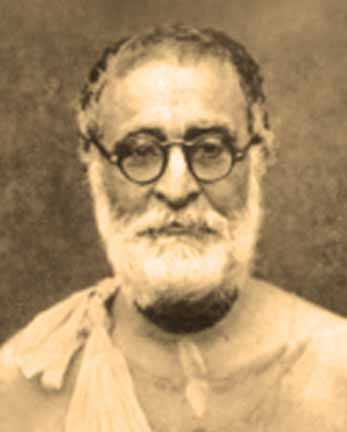śrī śrī guru gaurāṅga jayataḥ!

Year 11, Issue 5
Posted: 3 June 2018
Dedicated to
nitya-līlā praviṣṭa oṁ viṣṇupāda
Śrī Śrīmad Bhakti Prajñāna Keśava Gosvāmī Mahārāja
Inspired by and under the guidance of
Śrī Śrīmad Bhaktivedānta Nārāyaṇa Gosvāmī Mahārāja
The Ultimate Goal of Life

Men become confused about the spiritual deity they worship in the midst of their attempts to acquire the three main objects of human pursuit (tri-varga). These three are dharma, or virtue; artha, or wealth; and kāma, or desire. And those who hanker to acquire the fourth object, namely mokṣa, or emancipation, go all the more astray. But those who have taken shelter of Bhagavān are not only rid of knowledge about non-distinctive brahma,available by absolute perception, but they are also above the craving to be in the vicinity of or to merge into Paramātmā, a partial phase of God, for they are free from erroneous conceptions about God’s plenary character. Only those who have been fortunate enough to have the opportunity to hear the wonderful teachings of Śrī Caitanya Mahāprabhu about universal relativity (sambandha), the means of attainment (abhidheya) and the need or object of attainment (prayojana), can comprehend these conclusions.
Those with such understanding remain engaged in the service of the plenary knowledge, or sentience, being well-established in their own eternal position. But they have not made that eternal position merely in proximity to Paramātmā, nor have they made their eternal endeavours there – though a predilection for non-distinctiveness or a notion of oneness between matter and non-matter leads one to conceive of doing so. On the other hand, they have ascertained, as their object, the need of eternally tasting the sweetness of the full sentient bliss with their own nature as jīvas, the atomic portions of eternal existence and sentient bliss. This is not an ephemeral conception generated by any physical or mental ideology.
Through the course of action whereby one cultivates thoughts about God, the desire, knowledge and activities of the jīva in his essential and eternal nature becomes the subject matter of one’s everlasting conception. Then one is no longer dragged into undesirable regions by contemporaneous thoughts about dharma, artha, kāma and mokṣa, the catur-varga, while attempting to ascertain the proper object of human pursuit. Then one no longer deviates under the influence of bodily and mental concerns, away from the right track, the one that leads to ascertaining the true object of life. Nor does one fall again from eternal devotion in order to offer any respect to karma, jñāna, and so on, and thereby create some disturbance in the loving cultivation of Śrī Kṛṣṇa , like those in the garb of karmīs, jñānīs and men with other desires.
An abundance of Śrī Caitanya Mahāprabhu’s teachings are present in the Śrīmad-Bhāgavatam and treatises following in its wake. They are available in the good company of the followers of the Śrīmad-Bhāgavatam and centre around the highest object of human pursuit: the ultimate achievement of self-conquest, love of God.
The professors of the non-distinction of brahma call the annihilation of all conception ”emancipation” with a desire to reconcile the principles of sattvaand tamas (the highest and the lowest of the three properties of matter). That reconcilation manifests in two forms: (1) aversion to serving Viṣṇu by withdrawing from sentience, or merging into matter, and (2) conciliation with all that is material while fostering apathy toward serving Viṣṇu, or merging into sentience.
When the jīva rids himself of the principle of tamas found on the māyāvāda path [the path of the darkness of ignorance] , and becomes established in serving Absolute sattva (God), he is then able to do away with the oppositions of any antagonists of the Vaiṣṇavas. With the aid of Viṣṇu’s transcendental disc weapon, Sudarśana, or of Vaiṣṇava darśana, they may blind the eyes of those mistaken philosophers, who see only mundane enjoyment and renunciation. Then that jīva, freed from the shackles of avidya (namely, identification of the self with the body), may accept a role of subservience to Śrī Ānanda-tīrtha (Madhva Ācārya), the propounder of tattva-vāda.
That tattva-vāda [the path of the illumination of eternal truth] emanates strong attachment to serving, eternally, Śrī Gaurasundara (Caitanya Mahāprabhu), who is identical to Śrī Vrajendra-nandana (Śrī Kṛṣṇa).
Adapted from The Gauḍīya, Volume 8, Number 3
by the Rays of The Harmonist Team